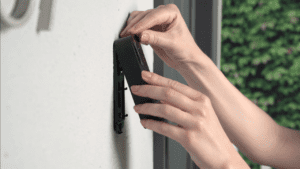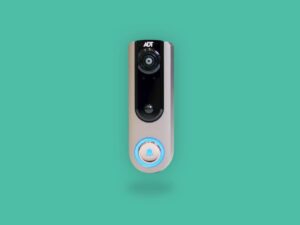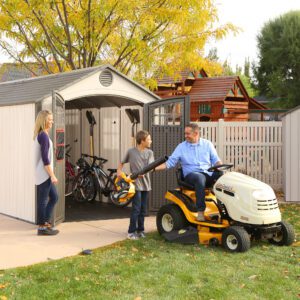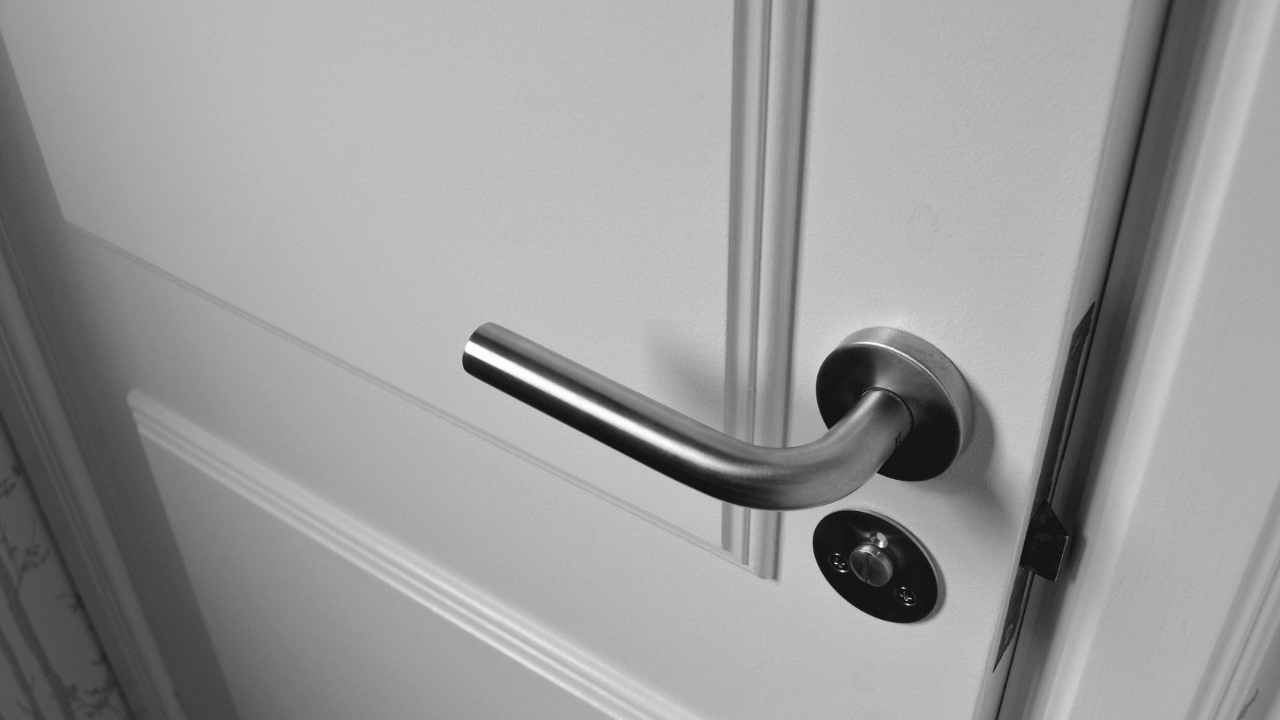
What is Not a Physical Security Measure for Your Home: Avoid These Common Mistakes
An alarm system alone needs to provide more physical security for your home. Durable doors, strong locks, sturdy windows, and secure frames are necessary.
These features help protect your home from intruders and prevent unauthorized access. Additionally, installing security cameras and motion sensors can enhance your home’s physical security. Regularly maintaining these measures, such as replacing broken locks or repairing damaged doors, is essential for ensuring the ongoing safety of your home.
Implementing physical security measures creates a safe environment for you and your family.
Neglecting Basic Locks And Deadbolts
Neglecting essential locks and deadbolts can leave your home vulnerable, as they need more physical security measures.
Importance Of Sturdy Locks And Deadbolts
- Installing sturdy locks and deadbolts is crucial for ensuring the security of your home. These physical security measures act as the first line of defense, deterring potential intruders from attempting to break in. Here’s why they are so important:
- Resistance to forceful entry: Strong locks and deadbolts are designed to withstand external pressure and force. They provide an added layer of protection that makes it difficult for burglars to gain unauthorized access to your home.
- Peace of mind: Knowing that you have reliable locks and deadbolts in place can give you peace of mind regarding the safety of your family and belongings. You can be assured that your home is well-protected.
- Insurance requirements: Many homeowners’ insurance policies require the installation of quality locks and deadbolts. Meeting these requirements can help you secure the insurance coverage you need in case of any break-ins or thefts.
How Weak Locks Can Be Easily Bypassed
- Neglecting essential locks and deadbolts can leave your home vulnerable to break-ins. Weak locks can be easily bypassed, offering little to no resistance against intruders. Here’s why you should not overlook the importance of sturdy locks and deadbolts:
- Lock picking: Low-quality locks are often susceptible to picking, where intruders can manipulate the lock mechanism and gain entry without a key. Sturdy locks make it significantly harder for would-be burglars to pick the lock.
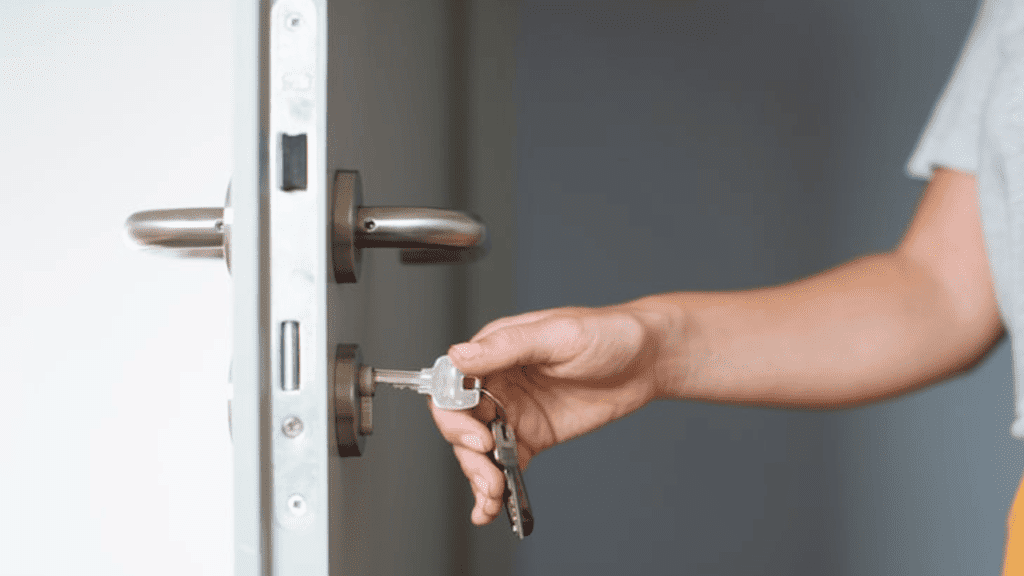
- Bumping: The lock bumping technique uses a specially crafted bump key to open a lock. Weaker waves are more likely to be vulnerable to this method, making it easier for intruders to gain unauthorized access to your home.
- Kick-ins: Weak locks can easily be kicked open by applying great force. This method is particularly effective if no deadbolt is installed or the deadbolt is weak. Quality locks and deadbolts provide the necessary resistance against kick-ins.
- Snap attacks: Weak euro cylinder locks commonly found in UPVC doors can be vulnerable to snap attacks. Burglars can easily crack the lock using minimal force, bypassing the security of your home. Installing anti-snap locks can prevent this type of break-in.
Remember, neglecting essential locks and deadbolts can create an open invitation to potential intruders. Enhancing your home’s security starts with prioritizing the installation of sturdy locks and deadbolts. Reducing the risk of unauthorized access can protect your important data.
Misguided Trust In CCTV Systems
Despite popular belief, CCTV systems are not a physical security measure for your home. Relying solely on them can lead to misguided trust, as they cannot physically prevent intrusions or protect your property.
Myth Of CCTV Cameras As Complete Security Solution
CCTV cameras have become common in homes and businesses, providing security and peace of mind. However, it is crucial to understand that CCTV systems are not foolproof for protecting your home from break-ins.
Here are some reasons why relying solely on CCTV cameras may give you a false sense of security:
- Limited field of view: CCTV cameras have a limited range, so they may not capture the entire area you want to monitor. Blind spots can provide opportunities for intruders to go undetected.
- No real-time response: While CCTV cameras can record incidents for later review, they do not provide real-time monitoring or immediate response to potential threats. If a break-in occurs, you need someone actively monitoring the footage and alerting authorities.
- Vulnerability to sabotage: CCTV cameras can be tampered with or disabled by intruders, rendering them useless as a security measure. Clever criminals may cover their faces or strategically avoid areas where cameras are placed.
- Lack of deterrence: Although the visible presence of CCTV cameras may deter some opportunistic criminals, they may not prevent experienced burglars. They know how to avoid detection and may be skilled in disabling or bypassing the cameras.
- Inability to prevent incidents: While CCTV cameras can provide valuable evidence after a break-in, they do little to prevent the incident from happening in the first place. They are primarily a reactive measure rather than a proactive one.
- False sense of security: Relying solely on CCTV systems can lead to complacency and a false sense of security. Adopting a multi-layered approach to home security is essential, including physical barriers, alarms, access control systems, and professional monitoring.
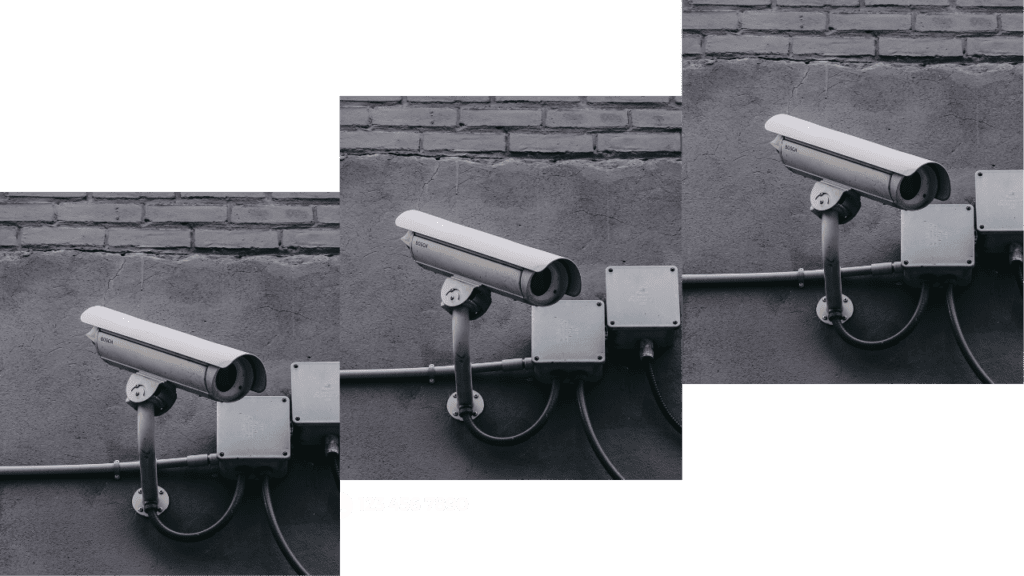
It is essential to understand the limitations of CCTV cameras and not place misguided trust in them as a complete security solution. Integrating them with other physical security measures can provide a more robust and reliable home protection system. Prevention is critical, and investing in comprehensive security measures is crucial to safeguarding your home and loved ones.
Relying Solely On Alarm Systems
Relying solely on alarm systems may not provide physical security for your home. While alarms can deter intruders, they do not physically prevent unauthorized access or protect your property from damage.
Alarm Systems As A Deterrent, Not A Physical Barrier
Using alarm systems as the sole security measure for your home may not provide the physical barrier you need to protect your property. While alarms serve as deterrents and can alert you and the authorities to potential threats, they have vulnerabilities and limitations that should be considered.
Here are some critical points to take into account when relying solely on alarm systems:
- Alarm systems are primarily designed to deter potential intruders. An alarm may discourage burglars from targeting your home, but it does not physically prevent them from accessing your property.
- The sound of the alarm may alert you and your neighbors, potentially causing the intruder to flee. However, it does not physically restrict their access or prevent damage to your property.
- Alarm systems depend on external factors such as power supply and network connectivity. If a burglar cuts the power or turns off the phone lines, the alarm may not function properly, leaving your home vulnerable.
- False alarms can sometimes occur due to technical malfunctions or human error. Frequent false alarms can decrease response times from the authorities and may even lead to fines in some areas.
- Alarm systems are not foolproof and can be bypassed by experienced and determined intruders. They may exploit vulnerabilities in the system or use techniques such as jamming or hacking to disable or manipulate the alarms.
- While alarm systems can notify you and the authorities in case of a break-in, the response time may vary. It depends on various factors like your location, the availability of emergency services, and the priority given to your situation.
Remember, relying solely on alarm systems for your home security may leave certain aspects unprotected. It is essential to consider additional physical security measures to create robust protection against potential intruders.
Vulnerabilities And Limitations Of Alarm Systems
Alarm systems, although advantageous, come with vulnerabilities and limitations that compromise their effectiveness as the only form of security. Here are some of the reasons why relying solely on alarm systems may not provide adequate protection:
- Alarm systems lack physical barriers: Unlike measures like sturdy doors, fences, or locks, alarm systems do not physically prevent unauthorized access to your home.
- Power and connectivity dependency: Alarm systems rely on power and network connectivity. If an intruder cuts off the power supply or disables the phone lines, the alarms may fail to function correctly.
- False alarms: Technical malfunctions or user errors can lead to false alarms. Frequent false alarms may result in slower response times from emergency services or even penalties in some areas.
- Vulnerability to bypassing: Skilled intruders can exploit weaknesses in alarm systems, enabling them to bypass or manipulate the devices. Jamming or hacking techniques can disable or render the alarms ineffective.
- Varying response times: The response time for emergency services can vary based on location and priority.
While alarm systems serve as deterrents and can notify you and the authorities of potential threats, they should be supplemented with physical security measures to ensure comprehensive protection for your home.
Ignoring Secure Window Features
Discover the non-physical security measures you might ignore, like overlooking secure window features, that are crucial for safeguarding your home against intruders. Optimize your home security by prioritizing both physical and technological aspects.
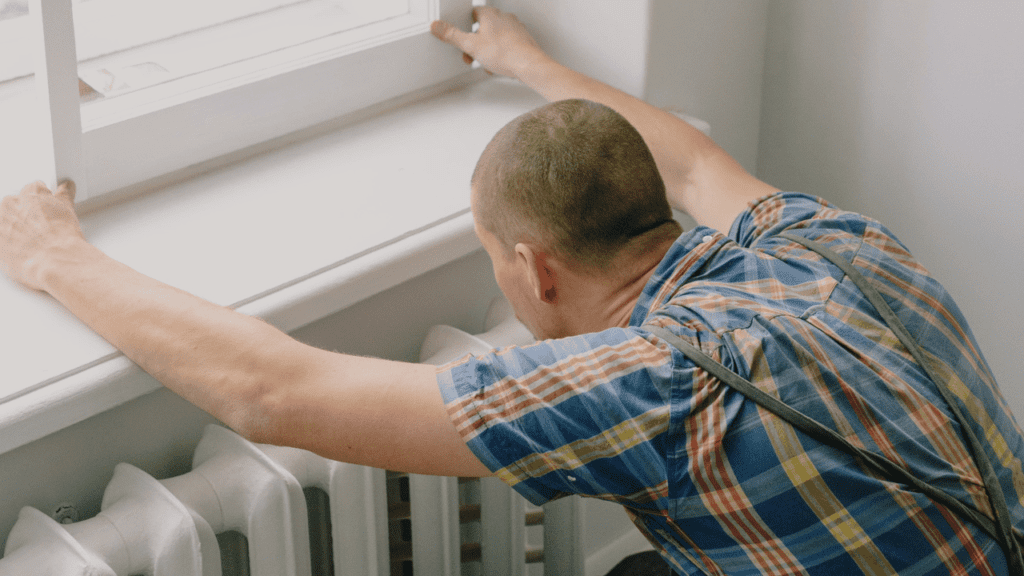
Windows are a common entry point for intruders; paying attention to their security can leave your home vulnerable. By ignoring secure window features, you undermine the overall physical security of your property. This section will discuss two crucial aspects of window security: the importance of window locks and reinforced glass and the common mistakes people make when securing their windows.
Importance Of Window Locks And Reinforced Glass:
- Window locks play a crucial role in preventing unauthorized access to your home. They act as a deterrent, making it more difficult for potential burglars to break in. Consider these points:
- Adequate window locks can effectively reduce the risk of forced entry.
- High-quality locks are more resistant to tampering or picking attempts.
- Locks should be installed on all windows, including basement and attic windows, as these are often targeted entry points.
- It’s essential to regularly check and maintain your window locks to ensure they are functioning correctly.
- Reinforced glass is another vital feature that enhances window security. Here’s why it matters:
- Reinforced glass is more resistant to attempted break-ins than standard glass, making it harder for burglars to gain access.
- Some options, like laminated or tempered glass, can withstand significant force before breaking, providing protection.
- Reinforced glass can enhance safety during natural disasters and accidents by reducing the risk of injury from shattered glass fragments.
Common Mistakes In Window Security Measures:
- Neglecting to install window locks or using subpar locks can make your home an easy target. Avoid these mistakes:
- Only install window locks on some windows, assuming specific windows are too high or inaccessible.
- Using low-quality locks that can be easily bypassed or manipulated.
- Overlooking regular maintenance of window locks, such as lubrication or tightening screws, which can compromise their effectiveness.
- Ignoring reinforced glass options can leave windows vulnerable to break-ins. Avoid these oversights:
- Not considering the use of reinforced glass for ground-level or easily accessible windows.
- Assuming that standard glass is sufficient protection against attempted intrusions.
- Not exploring different types of reinforced glass, such as impact-resistant glass or security film.
By paying attention to window locks and reinforced glass features, you can significantly enhance the security of your home. Pay attention to these essential elements when considering your overall physical security measures. Remember, maintaining a strong defense against potential threats starts with prioritizing the security of your windows.
Negligence Towards Lighting And Landscaping
Neglecting proper lighting and landscaping can pose a security risk to your home, making it vulnerable to unauthorized access. Enhancing physical security measures should not exclude the importance of well-lit exteriors and a well-maintained landscape, ultimately deterring potential intruders.
The Role Of Lighting And Landscaping In Deterring Burglars
Imagine this scenario: It’s pitch black outside, and your home is engulfed in darkness. The lack of proper lighting in and around your property can inadvertently invite intruders, making it easier for them to go undetected. Refrain from considering lighting and landscaping as part of your home security measures to leave you vulnerable to break-ins.
This section will discuss how lighting and landscaping can prevent burglaries.
Common Mistakes In Outdoor Security Measures
When it comes to outdoor security, there are several mistakes that homeowners often make, unknowingly compromising the safety of their property. By recognizing these common errors, you can take proactive steps to rectify them, enhancing the security of your home.
Here are some common mistakes:
- Inadequate Lighting: Poorly lit areas create ideal hiding spots for burglars. Insufficient lighting around entrances, walkways, and your property perimeter can make it easier for criminals to approach undetected. Ensure that these areas are well-lit to deter potential intruders.
- Neglecting Landscape Maintenance: Overgrown shrubs, trees, and dense vegetation provide convenient hiding places for burglars. Ensure to maintain your landscaping and trim any plants near windows, doors, or other entryways to eliminate potential hiding spots.
- Unsecured Outdoor Spaces: Failing to secure outdoor spaces, such as sheds, garages, or storage areas, can be an invitation for burglars. These areas often contain valuable items and tools that can be used to facilitate a break-in. Ensure these spaces are adequately secured with sturdy locks and monitored like the rest of your property.
- Lack of Motion Sensor Lighting: Motion sensor lighting can be a powerful deterrent for burglars. These lights illuminate the area when activated, alerting homeowners and neighbors to potential intruders. Install motion sensor lights at strategic locations around your property, such as entryways or dark corners.
- Failure to Use Timers: Leaving your home completely dark when you’re away for an extended period can indicate your house is unoccupied, making it a potential target for burglars. Utilize timers for indoor and outdoor lights to create the illusion of presence, even when you’re not home.
To decrease the likelihood of burglary and increase the physical security of your home, it’s crucial to address common mistakes. Remember that maintaining a well-lit and well-maintained property sends a powerful message to potential intruders that your home is not an easy target.
Overlooking Home Exteriors
Overlooking Home Exteriors reveals a surprising truth: relying solely on alarm systems is insufficient to secure your home. Physical security measures like locks and cameras should complement other strategies for comprehensive home protection.
The Significance Of Doors, Windows, And Garage Security
When it comes to securing your home, paying attention to the security of your home’s exteriors is crucial. This includes paying attention to the doors, windows, and garage, as these areas can often be weak points that intruders target. Take note of the following points to ensure your home exteriors are adequately secured:
- Doors:
- Install solid doors made from sturdy materials like metal or solid wood, as they are more challenging to break through.
- Consider reinforcing the door frames with metal plates to prevent them from being kicked in.
- Upgrade to high-quality deadbolt locks that have at least a one-inch throw.
- Windows:
- Install window locks on all ground level and accessible windows to deter intruders.
- Consider using laminated or reinforced glass for added protection against break-ins.
- Install window security film to make it more difficult for intruders to smash through the glass.
- Garage:
- Keep your garage doors closed and locked when not in use, even if you’re stepping away temporarily.
- Invest in a reliable garage door opener with rolling code technology to prevent unauthorized access.
- Install motion sensor lights around the garage area to deter potential intruders.
Securing your home’s doors, windows, and garage is essential for comprehensive physical security. Following these measures can significantly reduce the risk of unwanted entry into your home.
Common Mistakes In Securing Home Exteriors
When securing home exteriors, it’s essential to avoid common mistakes that can compromise your home’s safety. Here are some common errors to be aware of:
- Neglecting regular maintenance:
- Failing to maintain doors, windows, and garage doors can weaken security over time.
- Regularly inspect and maintain these areas, ensuring that locks, hinges, and frames work well.
- Using weak or outdated locks:
- Using low-quality or outdated locks can make it easier for intruders to gain access.
- Invest in high-quality locks that meet industry standards and regularly update them as needed.
- Underestimating the importance of lighting:
- Insufficient outdoor lighting can create hiding spots for intruders.
- Install adequate lighting around entry points, pathways, and the garage area to enhance visibility and deter potential threats.
- Not utilizing technology and security systems:
- A lack of security technology such as alarms, surveillance cameras, and smart home systems can leave your home vulnerable.
- Consider installing security systems that provide extra protection and remote monitoring capabilities.
If you can avoid these common mistakes, you can significantly enhance your home exterior’s security and provide you and your family with greater peace of mind.
Underestimating The Importance Of Home Maintenance
Proper home maintenance goes beyond physical security measures; it encompasses various aspects often underestimated. Homeowners risk compromised safety, decreased property value, and potentially costly repairs by neglecting regular upkeep. Stay proactive and prioritize maintenance to safeguard your home’s well-being.
Neglecting the maintenance of your home may seem unrelated to its security. Still, the truth is that it can significantly impact the level of protection you have against burglars and intruders. While physical security measures like alarms, cameras, and locks are essential, home maintenance should never be underestimated.
Let’s explore how neglecting maintenance can compromise your home’s security:
How Neglecting Maintenance Can Compromise Security:
- Lack of Proper Lighting: Failure to maintain outdoor lighting can create dark spots around your property, offering cover for potential intruders. Adequate lighting is an effective deterrent, as it increases visibility and makes it difficult for burglars to remain unseen.
- Defective Doors and Windows: Malfunctioning or damaged doors and windows can be exploited by thieves. Without regular inspection and maintenance, hinges, locks, and frames may weaken over time, providing easy access points for intruders.
- Overgrown Vegetation: Neglected landscaping, such as overgrown trees and shrubs, can block the view from your windows and provide hiding spots for criminals. Regularly trimming and maintaining vegetation can enhance visibility and remove potential hiding spots.
- Unsecured Outdoor Valuables: Failing to maintain and secure outdoor valuables like bikes, grills, or tools makes them susceptible to theft and gives intruders a reason to target your property. Ensure that outdoor objects are adequately locked or stored away when not in use.
- Lack of Alarm Maintenance: If you have a home security system, paying attention to its regular maintenance can render it effective. Dead batteries, faulty wiring, or outdated software can compromise the functionality of your alarm system, leaving your home vulnerable.
The Relationship Between Home Maintenance And Security:
- Enhancing Visual Deterrence: Proper maintenance projects an image of care and attention to detail, giving the impression that your home is well-protected. This can discourage potential intruders who may believe that a well-maintained home likely has robust security measures in place.
- Prompt Identification of Vulnerabilities: Regular maintenance helps identify and address security vulnerabilities before they can be exploited. By promptly repairing or replacing damaged doors, windows, or locks, you reduce the risk of break-ins and improve the overall security of your home.
- Increasing Overall Safety: Home maintenance benefits security and contributes to your household’s safety. Fixing loose steps, repairing broken handrails, or addressing electrical issues reduces the risk of accidents and potential injuries within your home.
By neglecting home maintenance, you compromise not only the aesthetic appeal of your residence but also its security. The key is to prioritize regular maintenance tasks and stay vigilant in addressing any potential weaknesses. Remember, maintaining a secure home goes beyond physical security measures, and proper upkeep is vital in protecting your most valuable assets.
Disregarding Neighborhood Watch Programs
Neighborhood Watch Programs are an effective physical security measure for your home, but disregarding them can leave your property vulnerable.
Advantages Of Participating In A Neighborhood Watch
Participating in a neighborhood watch program can provide numerous benefits for your home security. Here are some key advantages:
- Crime deterrence: Neighborhood watch programs serve as a deterrent to criminal activity. The presence of active participants who actively monitor their surroundings sends a message to potential burglars that the community is vigilant and united against crime.
- Increased surveillance: By watching for suspicious activities, neighborhood watch members contribute to the community’s safety. This increased surveillance can help identify potential threats and promote a safer environment.
- Prompt response: In the unfortunate event of a security breach or emergency, neighbors who belong to a watch program can quickly respond and alert the authorities. This rapid response can minimize damage and ensure the necessary assistance is sought promptly.
- Community cohesion: Joining a neighborhood watch fosters a sense of unity and cooperation within the community. Getting to know your neighbors, attending meetings, and collaborating on initiatives build stronger relationships, making watching out for one another easier.
How Community Involvement Can Enhance Home Security
Active community involvement plays a vital role in enhancing home security. Here’s why:
- Increased awareness: Community activities expose you to valuable information about local safety concerns, recent incidents, and preventative measures to protect your home. Sharing this knowledge with fellow community members helps spread awareness and prevents potential security threats.
- Shared responsibility: When individuals actively participate in their community’s safety, the responsibility for home security is collectively shared. People become more vigilant and ensure no suspicious activity goes unnoticed, leading to greater deterrence against criminals.
- Information sharing: Maintaining open lines of communication within a neighborhood watch program enables residents to share important security-related information. This information sharing allows residents to be better informed about potential risks in the area, empowering them to take appropriate precautions.
- Sense of belonging: Involvement in community initiatives creates a sense of belonging and ownership. When residents feel connected to their surroundings, they are more likely to be invested in their neighborhood’s security, fostering a safer environment for everyone.
By actively participating in a neighborhood watch program and getting involved in your community, you enhance your home security and contribute to a safer, more cohesive neighborhood.
Neglecting Personal Security Habits
Neglecting personal security habits is not a physical security measure for your home. It is essential to prioritize measures such as installing alarm cameras and securing doors and windows to protect your home from intruders. Pay attention to these necessary precautions to ensure your safety.
The Importance Of Personal Security Habits
A robust and comprehensive security system is undoubtedly essential for protecting your home, but it’s equally crucial not to neglect personal security habits. These habits can significantly enhance your home’s overall security when followed consistently. Let’s explore the importance of personal security habits and common mistakes individuals make in protecting their homes.
Common Mistakes Individuals Make In Protecting Their Homes:
- Leaving doors and windows unlocked: Neglecting to lock doors and windows is one of individuals’ most common mistakes. It leaves your home vulnerable to intrusion and compromises its physical security.
- Sharing sensitive information: Whether through social media or casual conversations, sharing too much information about your home, routines, or travel plans can make you an easy target for burglars. Be cautious about the personal information you disclose.
- Ignoring regular maintenance: Regular maintenance of security systems, including alarms and surveillance cameras, can ensure their effectiveness. Make sure to perform regular inspections and quickly resolve any problems that arise.
- Poor lighting: Insufficient lighting around your home, especially in entryways and dark corners, can create hiding spots for intruders. Ensure that all entry points are well-lit to deter potential threats.
- Lack of communication with neighbors: Building a rapport with your neighbors and establishing a system of mutual watchfulness can be immensely helpful in preventing potential security breaches. Establishing a sense of community and looking out for each other can go a long way in deterring criminals.
- Failing to secure valuables: Leaving valuable items in plain sight, such as expensive electronics or jewelry, can entice criminals. Store your valuables securely, and consider installing a safe for added protection.
- Using predictable patterns: Following predictable routines and habits can make your home an easy target. Vary your daily schedule, including departure and arrival times, to create uncertainty for potential intruders.
- Disregarding online security: Nowadays, home security is not only about physical measures but also digital precautions. Neglecting to secure your online presence, including weak passwords and lack of antivirus software, can result in identity theft or hacking attempts.
By avoiding these common mistakes and implementing personal security habits, you can significantly enhance the security of your home. Remember, physical security measures alone are not enough; it’s essential to prioritize personal security habits to protect your home and loved ones effectively.
Stay vigilant, be proactive, and create a secure environment for yourself and your family.
Investing In Unreliable Security Measures
There are better choices than investing in reliable security measures for your home. Don’t rely on measures that don’t offer physical protection against potential threats. Safeguard your home with dependable security systems instead.
The Risks Of Purchasing Low-Quality Or Ineffective Security Products
It is vital to invest in trustworthy security measures to ensure the safety of your home and loved ones. It’s important to note that not all security products are of the same quality. It is essential to be aware of the risks associated with buying low-quality or ineffective security measures that could risk your home’s safety.
Here are some key points to consider:
- Poor-quality surveillance: cameras often produce grainy or blurry images, making identifying intruders or suspicious activities difficult. Investing in high-definition cameras with good resolution and night vision capabilities is essential for capturing clear and valuable footage.
- DIY security systems: While Do-It-Yourself security systems may seem cost-effective and convenient, they often lack the advanced features and professional monitoring that can prompt emergency response. Professionally installed and monitored security systems offer greater peace of mind and comprehensive protection.
- Substandard alarm systems: Alarm systems are crucial in deterring burglars and alerting homeowners of potential threats. However, investing in cheap, unreliable alarm systems can lead to false alarms or ineffective security measures. Choosing alarm systems from reputable brands with reliable sensors, keypad controls, and 24/7 monitoring services is advisable.
- Inadequate door locks: Weak and easily breakable door locks are an invitation for burglars. Ensure your home is equipped with sturdy deadbolt locks that meet industry standards and are resistant to picking or forced entry. Additionally, consider installing smart door locks with advanced security features such as real-time notifications and remote access.
- Lack of proper lighting: Insufficient or poorly installed outdoor lighting can create dark areas around your home, making it easier for intruders to go unnoticed. Investing in motion-sensor lights and ensuring proper illumination around entry points can deter potential burglars and increase the overall security of your property.
Investing in unreliable security measures can put your home at risk of intrusions and compromises. Prioritize the quality and effectiveness of security products to ensure the safety and well-being of your loved ones.
Frequently Asked Questions On What Is Not A Physical Security Measure For Your Home
Which Of The Following Should You Not Do During A Hostage Rescue Attempt?
During a hostage rescue attempt, you should not engage in any of the following actions: 1. Risk the safety of hostages through reckless or aggressive behavior. 2. Neglect to communicate and coordinate with law enforcement agencies. 3. Ignore the importance of proper training and preparation.
4. Act impulsively or without a well-defined plan.
Which Of The Following Is Not An Indicator Of A Potential Insider Threat?
Unusual behavior patterns are not an indicator of a potential insider threat.
What Are The Anti-Terrorism Level 1 Themes?
Anti-terrorism level 1 themes refer to specific topics aimed at combatting acts of terrorism. They address prevention strategies, intelligence sharing, and response protocols.
Which Of These Is A Possible Indicator Of A Suspicious Package?
A suspicious package may have indicators such as strange odors, unfamiliar or excessive postage, or unusual packaging.
Conclusion
To ensure the safety and security of our homes, it is crucial to implement appropriate physical security measures. While there are various effective methods, such as installing alarms, reinforcing doors and windows, and using security cameras, it is essential to recognize that not all security measures are physical.
Homeowners should not solely rely on physical barriers but also consider other aspects contributing to overall security. Education and awareness play a significant role in maintaining a secure living environment. By staying informed about potential threats, setting up neighborhood watch programs, and sharing safety tips with friends and family, we can actively contribute to a safer community.
Additionally, proactive measures such as securing Wi-Fi networks, regularly updating passwords, and being cautious about sharing personal information online are essential in today’s digital age. We can create a comprehensive and robust security strategy for our homes by considering physical and non-physical security measures.
Let’s prioritize safety and protect our loved ones.

